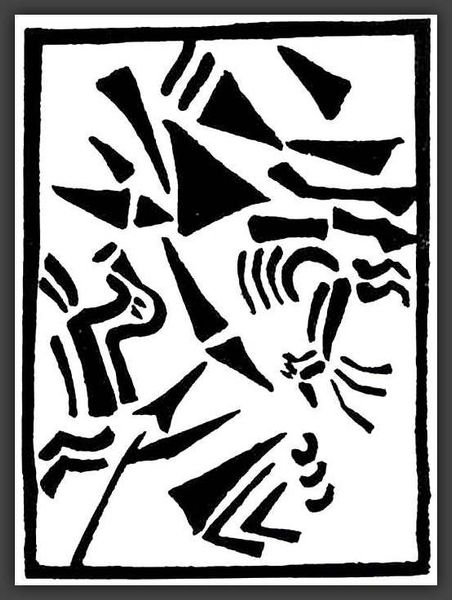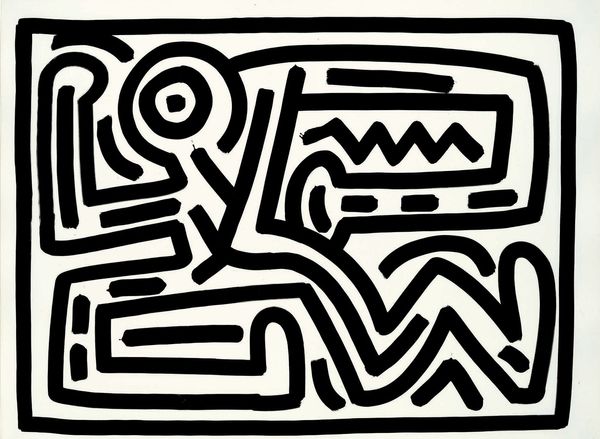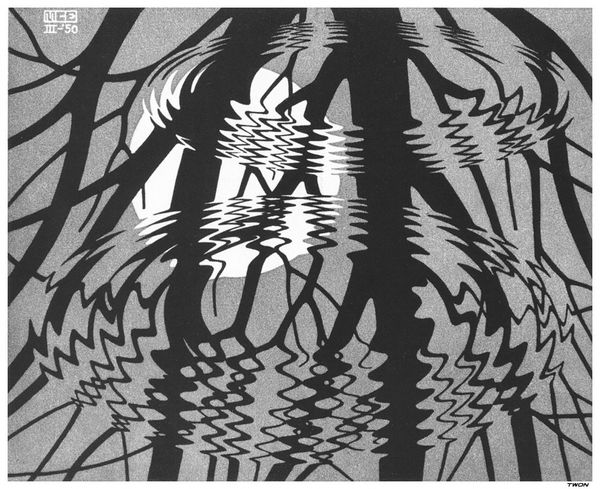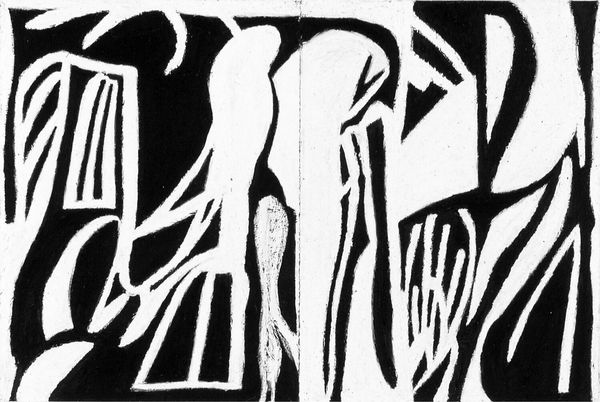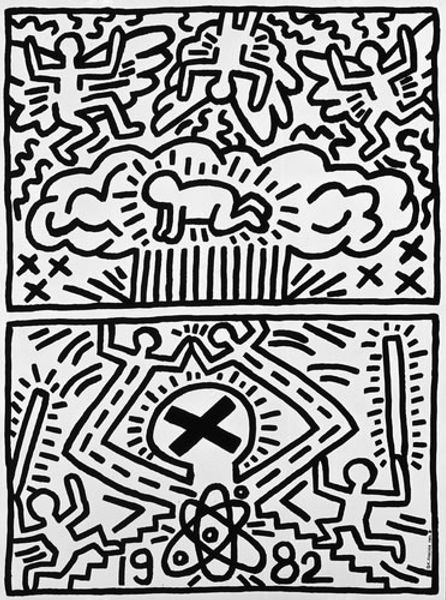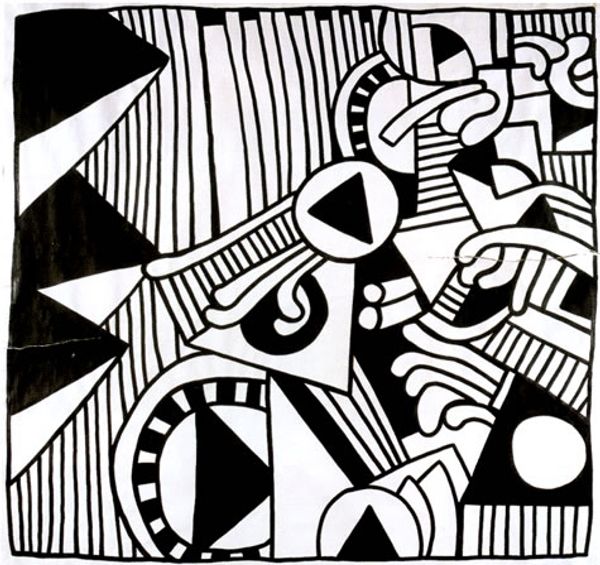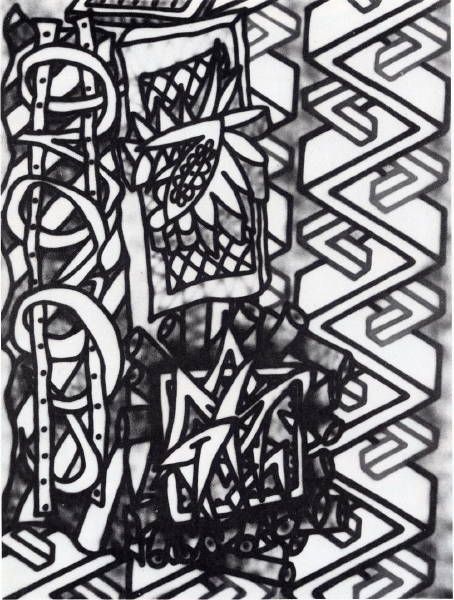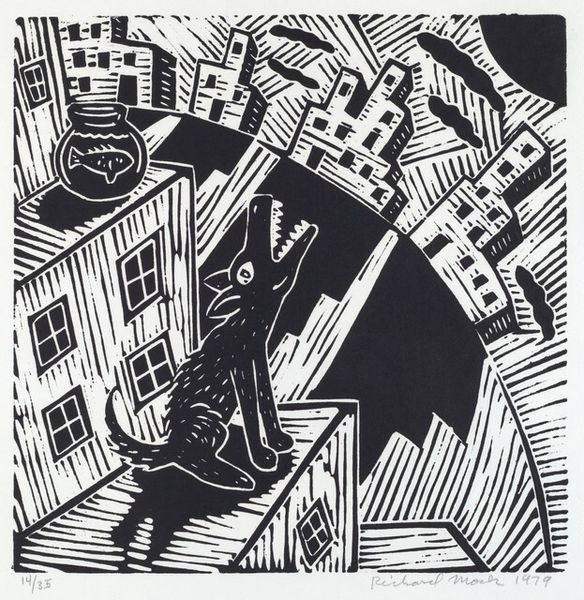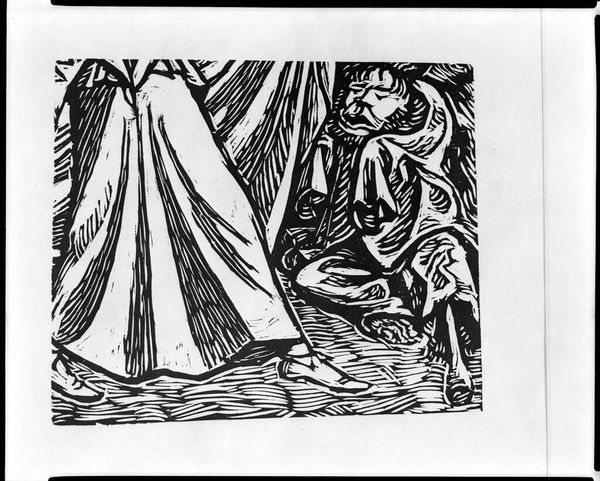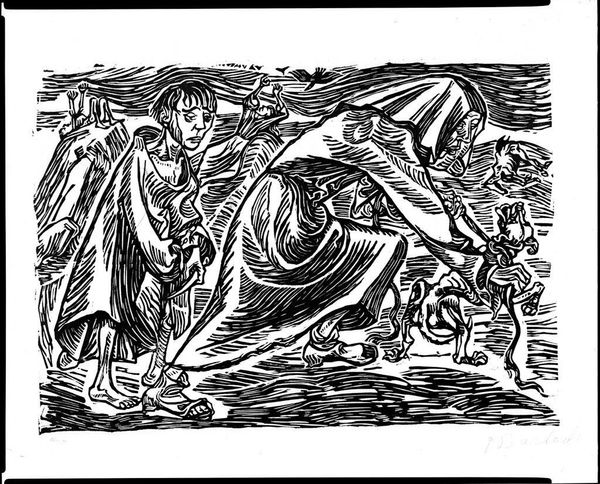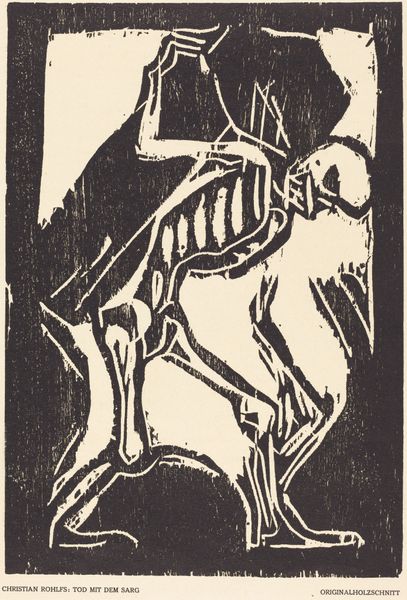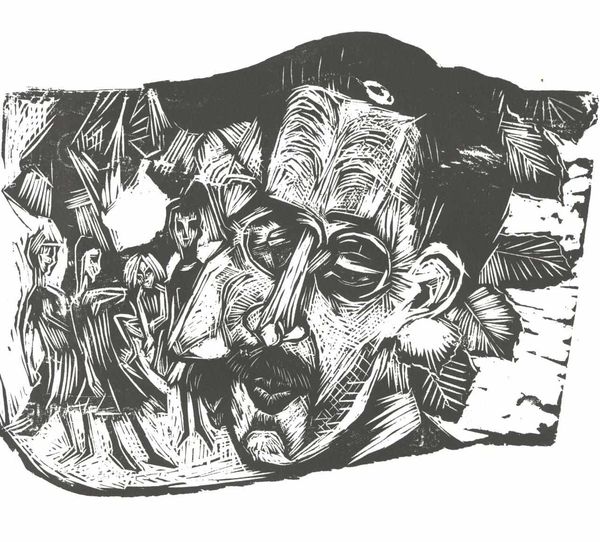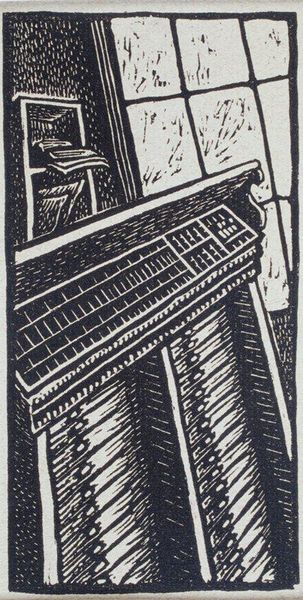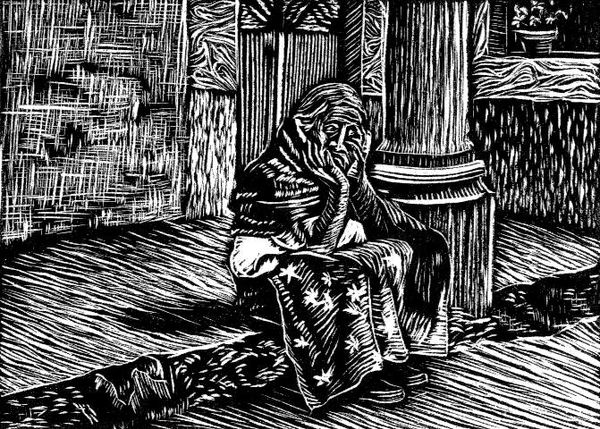
graphic-art, print, engraving
#
portrait
#
art-deco
#
graphic-art
# print
#
geometric
#
line
#
engraving
#
modernism
Copyright: Public domain US
Curator: Let's consider M.C. Escher's "Father with Magnifying Glass" created around 1920, an engraving printed via graphic art. The stark black and white contrast is striking. What catches your eye? Editor: Initially, I'm drawn to its geometric, almost puzzle-like quality. It's not a warm or inviting image, but rather cold and analytical. The hard lines and sharp angles create a sense of detachment. It feels very Modern. Curator: Indeed. Given its creation during the Interwar Period, after the widespread mechanization of the first World War, this focus on the mechanical construction is crucial. This period saw increased industrial production – how does Escher reproduce it here, in an age before mechanical reproduction techniques? The material contrast and clean delineation show the deliberate labor required for a clean print, almost flaunting it. Editor: And if we bring that industrialization back to the figure in the portrait, what labor and precarity exists there? I am interested in how that black backdrop might signify anxieties of the period about social mobility. What kind of father *is* he? Escher had difficult familial relationships, so is this a subtle, abstracted critique of paternity? Curator: Perhaps. The magnifying glass invites the viewer to consider not just the *subject* of the image, but the details and the labour inherent within it, foregrounding not just the content, but its mode of artistic construction. The negative space also creates this very same frame. Editor: Exactly. This pushes us beyond simple appreciation to understand the role art plays in shaping understanding. It becomes a dialogue about observation, labour, identity and even familial anxieties filtered through the lens of modernity. Curator: Ultimately, this is a useful challenge against romantic notions of "the artistic genius" for more transparent methods and models of material making. Editor: Definitely something to ponder as we leave the gallery. Thank you. Curator: My pleasure.
Comments
No comments
Be the first to comment and join the conversation on the ultimate creative platform.
